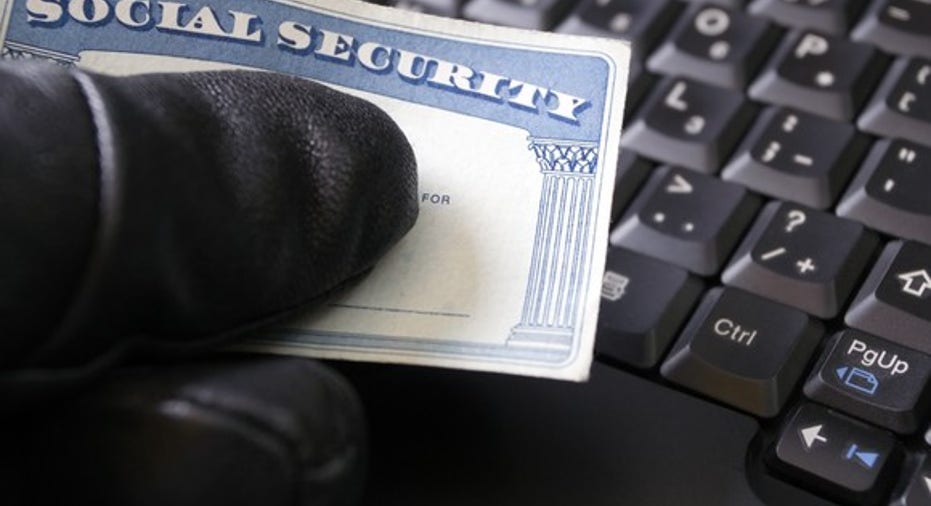Don't Fall for This Social Security Scam

Senior citizens have some characteristics that make them extra appealing to scam artists. They can be very trusting, for one thing, and they're also often worried about and protective of their money. Here's a common scam related to Social Security that has been used to trick many seniors out of their critical and limited funds.
Image source: Pixabay.
Let's set the stage first, though. Most seniors have more money saved than younger people, but it's typically still not a lot of money. According to a 2015 Government Accountability Office report, households featuring people aged 55 to 64 had medianretirement savings of $104,000, while those with people aged 65 to 74 had median savings of $148,000. If that's your nest egg and, as many recommend, you withdraw 4% of it in your first year of retirement, that's not quite $6,000. It's almost $500 per month. Clearly, most seniors need to make the most of every dollar they have.
Social Security retirement benefits, meanwhile, average $1,360. Most retirees are also very dependent on Social Security. Accordingto the Social Security Administration, the majority of elderly beneficiaries get 50% or more of their income from Social Security, while millions get 90% or more from it.
The "referendum" scam
That information makes clear how tragic it is whenever a senior is tricked out of money and how important it is to be able to spot and avoid scams.
A relatively recent scam preys on seniors' fears that they might lose their Social Security benefits. It typically arrives in letter form and it conveys the following (false) information:
- The letter is from a non-profit group advocating for seniors.
- Congress is trying to get rid of Social Security.
- The fake organization is working against that plan.
- They are asking seniors to vote to save Social Security.
- They are mailing out and collecting referendum ballots.
- They need more money to reach all seniors.
The scam has often asked for a donation of around$15 to $20 to send out ballots to more people. The sum is seemingly modest, which is one reason many respond -- it's manageable. The problem, though, is that if you make a credit card donation, as they'd like, you'll be giving these scammers valuable financial information and personal information with which to possibly steal your ID or at least make other, fraudulent, charges.
Image source: Getty Images.
What to do
Know that national governmental referendums are not conducted by non-profits through the mail, especially not in tandem with fundraising. Always be careful who you release your personal information or credit card information to.
If you get a mailing like the one above, toss it out or perhaps drop it off at your local police department.
If you're somehow tempted by it, thinking it might be real, do some digging. Look up the non-profit at the Better Business Bureau website at www.bbb.org. (Make sure you spell the name correctly, too, as some fake non-profits adopt names very similar to known and trusted ones.)
Two more scams
Folks at AARP have warnedtheir readers of two other scams related to Social Security:
- In one, you're contacted by a scammer pretending to work for Social Security and saying that they need to update your records. Thus, you're asked for all kinds of personal information that identity thieves crave, such as your Social Security number, your address, your birthdate, bank account number, mother's maiden name, and so on.
- In the other, a scammer approaches you tells you that he or she can get you bigger Social Security checks -- for a fee. Never do business with any such person. There are indeed strategies you can use to get bigger benefits, but you should look them up online or at the library or by consulting a financial advisor. (It's also possible to appeal the size of your checks with Social Security, but AARP advises:
It's smart to keep up on scams and remain vigilant, no matter your age. There are always scammers out there trying to trick us out of our hard-earned money.
The $15,834 Social Security bonus most retirees completely overlook If you're like most Americans, you're a few years (or more) behind on your retirement savings. But a handful of little-known "Social Security secrets" could help ensure a boost in your retirement income. For example: one easy trick could pay you as much as $15,834 more... each year! Once you learn how to maximize your Social Security benefits, we think you could retire confidently with the peace of mind we're all after.Simply click here to discover how to learn more about these strategies.
The Motley Fool has a disclosure policy.



















